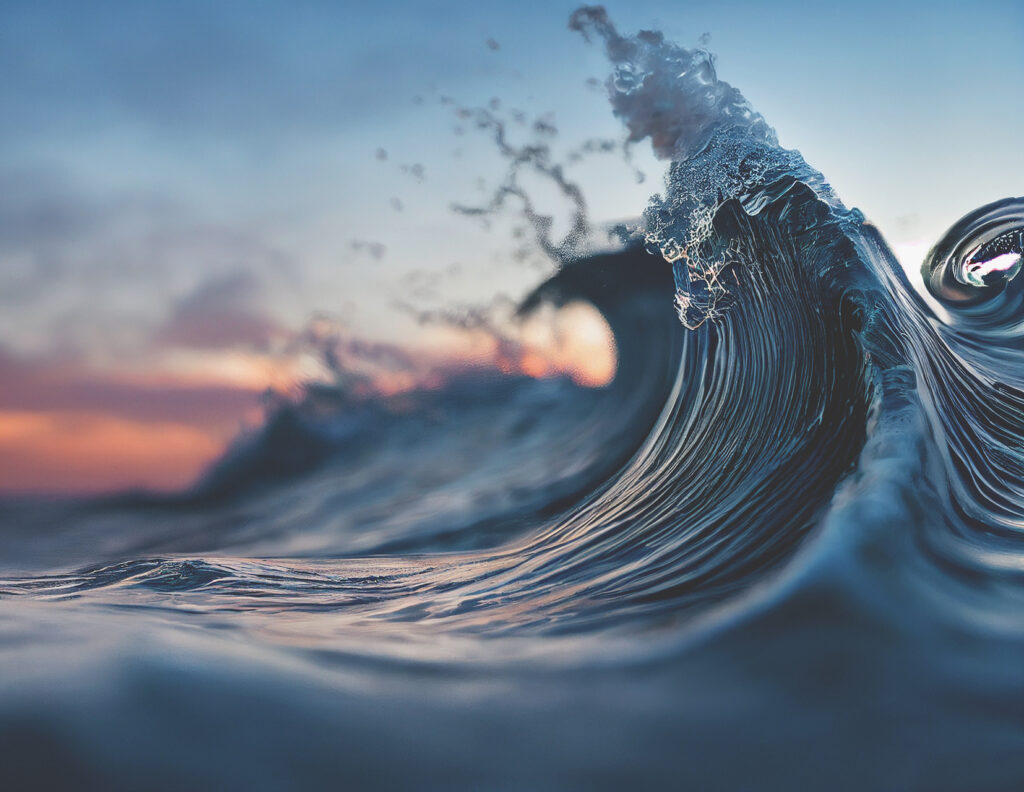Addiction can be a difficult challenge to overcome, usually requiring a combination of different approaches and strategies in order to see meaningful change. In previous articles, we’ve talked about the importance of building a recovery toolbox, as well as some specific tools such as H.A.L.T. or the SMART method of goal-setting.
In this article, we will be exploring another tool that can be particularly helpful in managing cravings and urges to drink or use substances in recovery: a technique known as urge surfing.
What Is Urge Surfing?
Urge surfing is a mindfulness-based technique that involves acknowledging and accepting the presence of an urge, but not acting on it.
An urge is not necessarily a bad thing or something that we should feel shame about, but rather a natural part of human existence—perhaps even more so in addiction recovery.
Just like waves—which come and go—an urge will start to build, peak, and then gradually fade away. When people try to suppress an urge or give in to it, they are often caught up in the peak of the wave and can lose control. However, if they can learn to surf the wave of an urge, they can ride it out and let it fade away naturally.

Similar to the age-old concept of accepting the present moment experience, urge surfing beckons us to face an urge rather than trying to escape it, avoid it, or turn it into something else. This allows individuals to recognize and address their cravings in a more mindful and self-aware way, rather than simply reacting to them automatically.
Where Does The Idea Of Urge Surfing Come From?
The concept of urge surfing was developed in the 1980s by psychologist Dr. Alan Marlatt and colleagues at the University of Washington’s Addictive Behaviors Research Center.
The technique was developed within a broader concept of Mindfulness-Based Relapse Prevention (MBRP), which is a recovery philosophy that aims to:
- Develop awareness of personal triggers and responsibility for habitual reactions
- Embrace discomfort as a tool for growth
- Foster a nonjudgmental and compassionate approach toward addictions recovery
- Support mindfulness practice and recovery through lifestyle
Since its development, urge surfing has become a widely recognized and evidence-based technique in the field of addiction treatment, as well as in other areas of mental health and well-being, such as managing stress and anxiety.
How to Practice Urge surfing
Here are some tips for learning how to surf your urges:
Recognize and acknowledge the presence of an urge. It’s important to identify and name the specific craving or desire that is being experienced. This can help you gain greater awareness and understanding of your thoughts and feelings.
Accept the presence of the urge. Rather than trying to resist or suppress the urge, try to accept it as a natural part of your experience. This can help you let go of any judgments or negative emotions surrounding the urge.
Observe the urge in a non-judgmental way. This can involve paying attention to sensations in your body or to thoughts and emotions associated with the urge.
Practice mindfulness and self-compassion. Having an urge or craving is a normal part of the recovery process; it’s nothing to feel bad about.
Ride the wave. Once you’ve recognized, accepted, and observed the urge, you can try to ride the wave of it, rather than trying to fight it or give in to it. This can involve engaging in other activities or distractions, practicing deep breathing or relaxation techniques, or finding supportive and healthy ways to cope with the urge.

In Conclusion
Urge surfing can be a powerful tool in addiction recovery because it helps individuals develop greater awareness, self-control, and self-compassion. It can also help individuals feel more in control of their thoughts and behaviours, and better able to cope with challenges and setbacks.
Overall, urge surfing can be a valuable technique to help individuals manage cravings and urges in a more mindful and self-aware way, and work towards lasting recovery.
Sunshine Coast Health Centre and Georgia Strait Women’s Clinic are world-class centers for addiction treatment and mental health. If you or someone you know is struggling with substance use and mental health, give us a call today.



